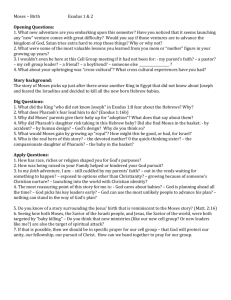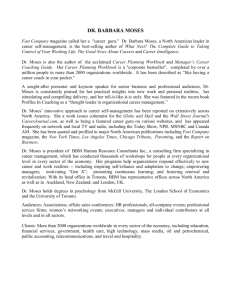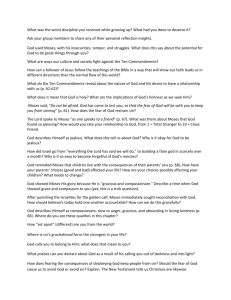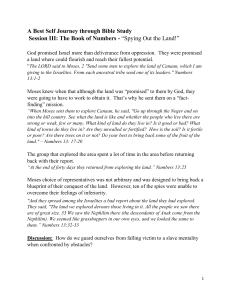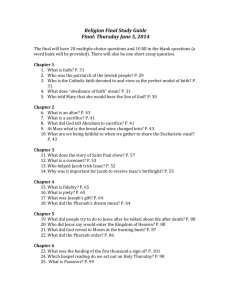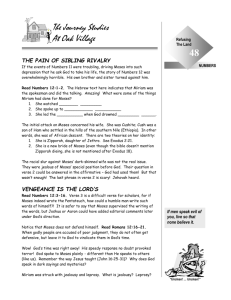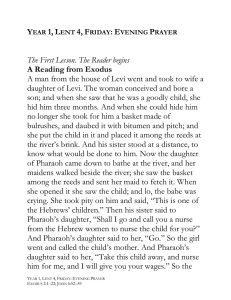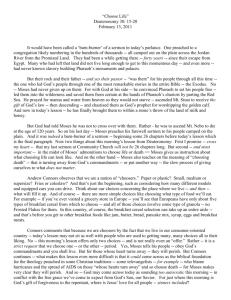Storytelling in Iraq
advertisement
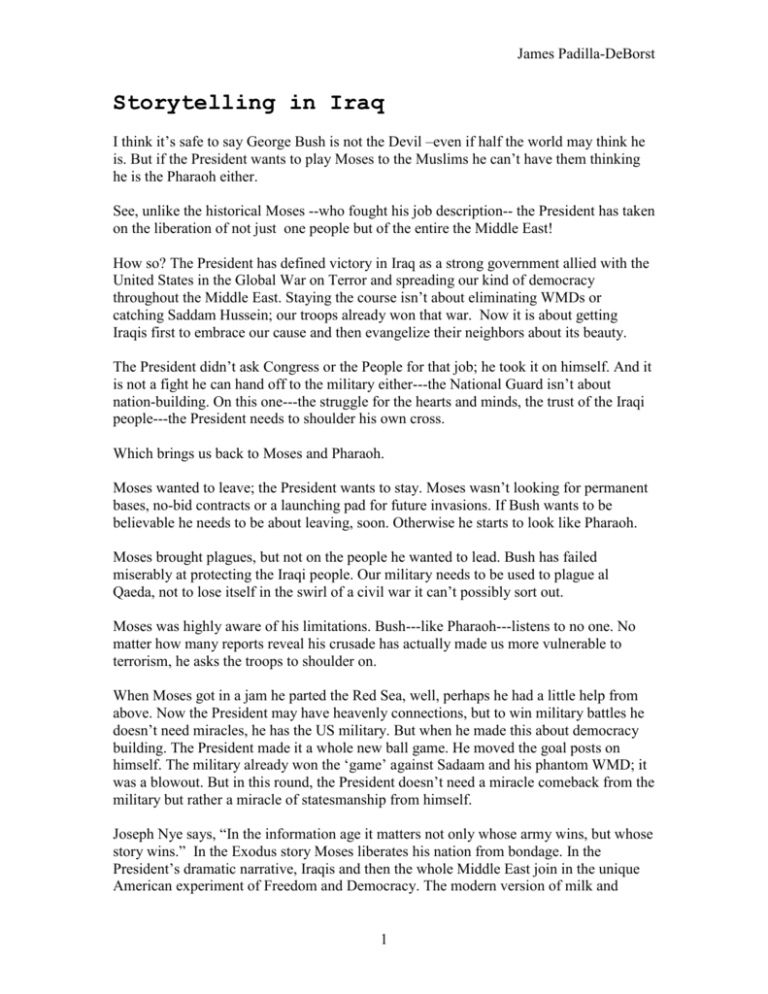
James Padilla-DeBorst Storytelling in Iraq I think it’s safe to say George Bush is not the Devil –even if half the world may think he is. But if the President wants to play Moses to the Muslims he can’t have them thinking he is the Pharaoh either. See, unlike the historical Moses --who fought his job description-- the President has taken on the liberation of not just one people but of the entire the Middle East! How so? The President has defined victory in Iraq as a strong government allied with the United States in the Global War on Terror and spreading our kind of democracy throughout the Middle East. Staying the course isn’t about eliminating WMDs or catching Saddam Hussein; our troops already won that war. Now it is about getting Iraqis first to embrace our cause and then evangelize their neighbors about its beauty. The President didn’t ask Congress or the People for that job; he took it on himself. And it is not a fight he can hand off to the military either---the National Guard isn’t about nation-building. On this one---the struggle for the hearts and minds, the trust of the Iraqi people---the President needs to shoulder his own cross. Which brings us back to Moses and Pharaoh. Moses wanted to leave; the President wants to stay. Moses wasn’t looking for permanent bases, no-bid contracts or a launching pad for future invasions. If Bush wants to be believable he needs to be about leaving, soon. Otherwise he starts to look like Pharaoh. Moses brought plagues, but not on the people he wanted to lead. Bush has failed miserably at protecting the Iraqi people. Our military needs to be used to plague al Qaeda, not to lose itself in the swirl of a civil war it can’t possibly sort out. Moses was highly aware of his limitations. Bush---like Pharaoh---listens to no one. No matter how many reports reveal his crusade has actually made us more vulnerable to terrorism, he asks the troops to shoulder on. When Moses got in a jam he parted the Red Sea, well, perhaps he had a little help from above. Now the President may have heavenly connections, but to win military battles he doesn’t need miracles, he has the US military. But when he made this about democracy building. The President made it a whole new ball game. He moved the goal posts on himself. The military already won the ‘game’ against Sadaam and his phantom WMD; it was a blowout. But in this round, the President doesn’t need a miracle comeback from the military but rather a miracle of statesmanship from himself. Joseph Nye says, “In the information age it matters not only whose army wins, but whose story wins.” In the Exodus story Moses liberates his nation from bondage. In the President’s dramatic narrative, Iraqis and then the whole Middle East join in the unique American experiment of Freedom and Democracy. The modern version of milk and 1 James Padilla-DeBorst honey. In his choice of story, the President has made his challenge even deeper, he is asking Iraqis to play roles in a foreign production. And how can they be expected to embrace the storyline of freedom, rights, and the rule of law when the back-story includes warrantless wiretaps, abuse, torture, rape and extraordinary rendition? Finally, in the Exodus story Moses conquers his fear of speaking and confronts Pharaoh verbally again and again. For the President’s story to prevail, he needs to stop hiding behind handlers and speaking to Republican crowds. If he can’t convince us of the power of our own story, how can he hope to win over the Middle East? To win in Iraq he needs to become a master storyteller and weave together the lives of Shiites, Sunnis, and Kurds. But if he isn’t up to that task, if the story of America in Iraq isn’t going to have a happy ending, then it’s just a fairy tale and its time for us to close the book. 2
